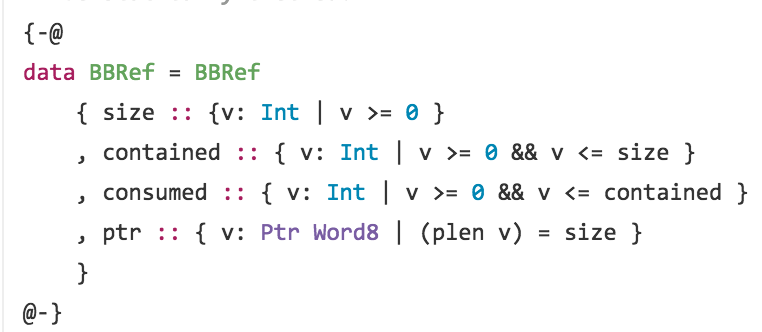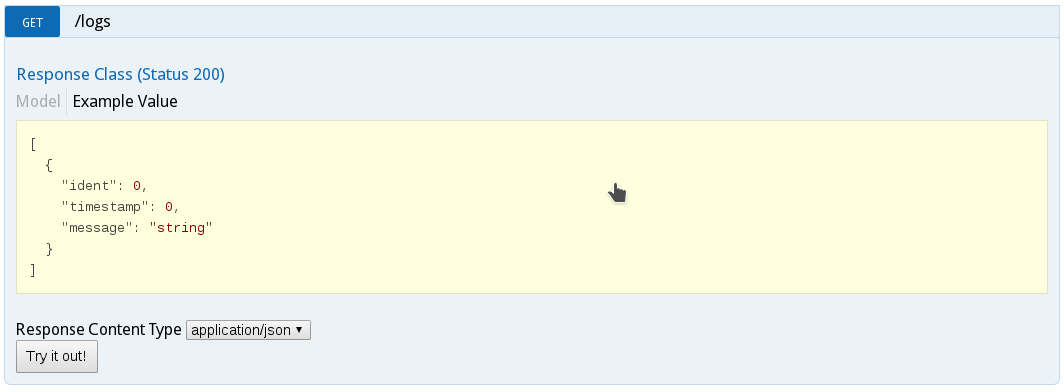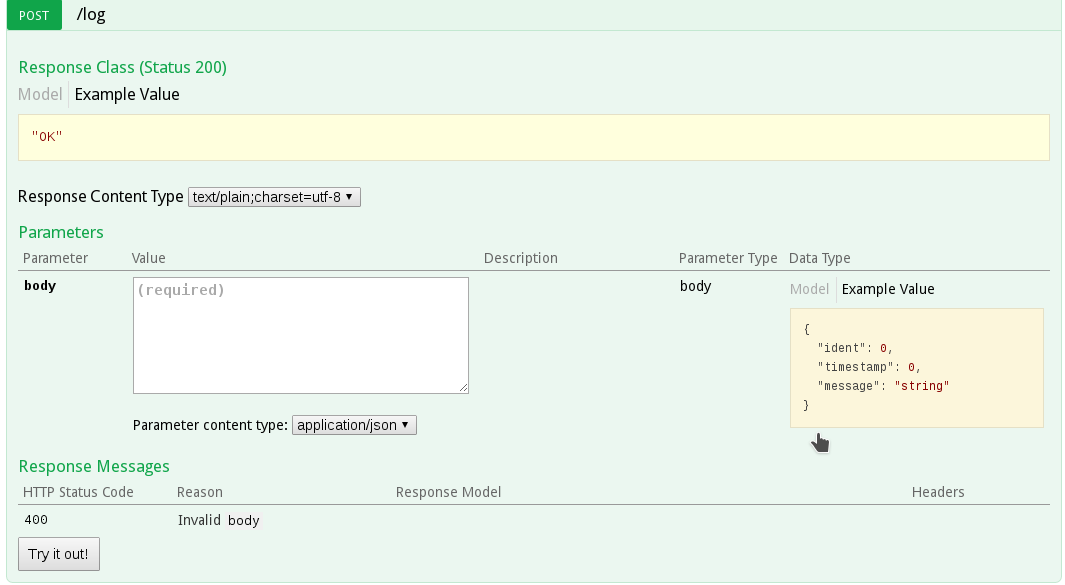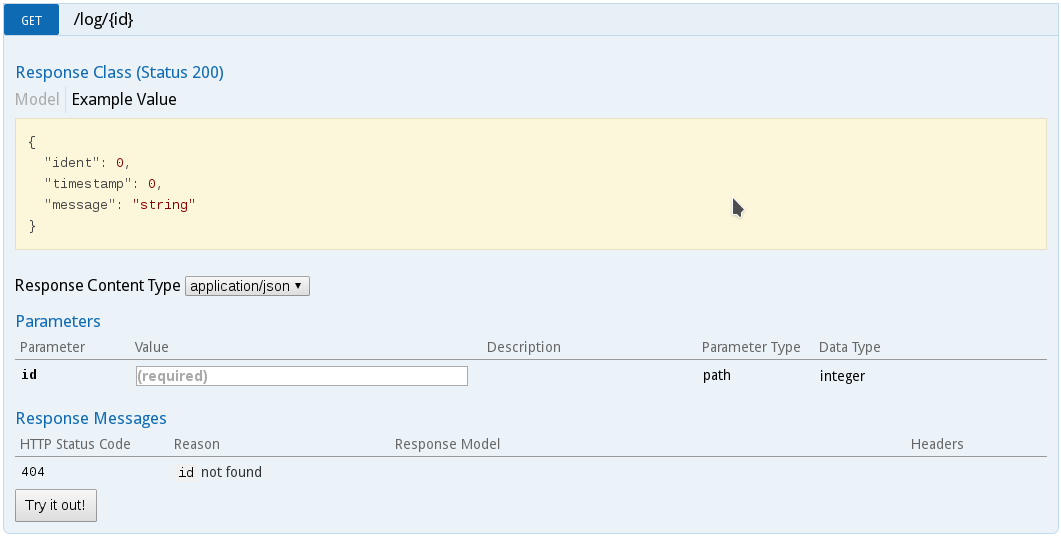Safe Client/Server Web Development with Haskell
Mark Mazumder & Timothy Braje

About us
writing Haskell for a year and a half at MIT Lincoln Laboratory
mazumder@ll.mit.edu
tbraje@ll.mit.edu
Outline
Haskell Crash Course
Phantom Types for Enforced Sanitization
Servant – A Web API as a Type
Functional Reactive Programming for the GUI
The Takeaway: Type Driven Programming
Make insecure code inexpressible
(inspired by Yaron Minsky’s “Make illegal states unrepresentable”)
Motivation
- Types are the lightest-weight verification tool
- Automates reasoning about your code
- Security and correctness are tied
- Security - properties of your code arrow_forward
- Tests - imprecise specifications arrow_forward
- Types - precise specifications arrow_forward
- Difficult: code review verification arrow_forward
- Add security properties to types
- Tests exercise finite inputs
- Forced to adhere to a contract
- Easy: compiler verification
A Brief Tour of the Haskell Ecosystem
- Types as a specification: precise properties
- Correctness ~ Security
GHC: the Haskell compilerGHCJS: the Haskell-to-JavaScript compilerLiquidHaskell: provable propertiesPhantom Types: lightweight enforcement against SQLi, XSSFunctional Reactive Programming: callback-free user interfacesTypeFamilies: type-level programmingSoftware Transactional Memory: easy concurrency (no locks)
Questions for pairing up
- Haskell experience?
- Vim or Emacs?
- Docker?
- GHCJS/Reflex/Servant?
- Has everyone run either
docker pull mmaz/secdevdocker pull mmaz/server-secdev
Docker Basics
Right now, update:
$ docker pull mmaz/secdevTest it out:
$ docker run --rm -it mmaz/secdev /bin/intro[0,1,2,3,4,5]
...Behind a proxy?
$ docker run \
-e "http_proxy=..." -e "https_proxy=..." -e "HTTP_PROXY=..." -e "HTTPS_PROXY=..." \
--rm -it mmaz/secdev /bin/introDocker stops working? In a new terminal window: docker stop $(docker ps -a -q)
Docker Run
$ docker run -p 8080:8080 --rm -it mmaz/secdev /bin/bash
$ secdev> exit # or Ctrl-d-eenvironment variable"foo=bar"-pport mapping--rmstateless (don’t persist changes)-iinteractive (don’t background)-ttag name (mmaz/secdev)
$ docker run -p 8080:8080 --rm -it mmaz/secdev /bin/ghci
GHCi, version 8.0.1
Prelude> 3 + 4
7
Prelude> :quit -- or Ctrl-DSpacemacs: Emacs + Vim
$ docker run --rm -it mmaz/secdev /bin/bash
$ secdev> emacs AddTwoNumbers.hs
# Alternatively
# vim AddTwoNumbers.hs
# nano AddTwoNumbers.hs
$ secdev> exit #or Ctrl-d- Default: Vim-Mode
- Quit
:q Enter(orEsc :q Enter) - Switch to emacs-mode:
SPC t E e - Exit from emacs-mode:
Ctrl-x Ctrl-c - Exit from nano:
Ctrl-x
Haskell Crash Course

Intro to Haskell
Haskell:
x :: A
x = y
A -> B
Meaning:
x has type A
x defined to be y
function from A to B
theNumberFive :: Int -- type declaration
theNumberFive = 5 -- definition
show :: Int -> String -- function type
$ stack ghci -- interactive repl
>>> theNumberFive
5 :: Int
>>> show theNumberFive
"5" :: String--double dash for code comments
String literals like "5" are doublequoted
Intro to Haskell
Let’s convert this C function to Haskell

Intro to Haskell
don’t need a type signature: still valid Haskell

Intro to Haskell
the function name

Intro to Haskell
a return value C is a definition in Haskell

Intro to Haskell
how do we read a type signature?

Intro to Haskell
still have the function name (like a header file in C)

Intro to Haskell
this is the type of the argument to plusfive

Intro to Haskell
Types read left-to-right. argument type to (“->”) return type

Intro to Haskell
name the argument value “x” in the lexical scope

Intro to Haskell
use “x” in the function definition

Intro to Haskell
all together: the input type, the output type, and the name-binding

Intro to Haskell
what about multiple arguments?

Intro to Haskell
the return type is still rightmost in Haskell

Intro to Haskell
here is the type of the first argument

Intro to Haskell
here is the type of the second argument

Intro to Haskell
so plus takes two ints and returns an int

Intro to Haskell
spaces separate name bindings instead of commas

Type Errors
1 2 3 4 5 6 7 8 | |
1 2 3 4 5 6 7 8 9 10 11 12 13 14 15 | |
Networks, Databases, Stdout
- a pure function like this can’t perform IO
plus :: Int -> Int -> Int- Wrap pure computations inside an
IOaction context
plusAndPrint :: Int -> Int -> IO Int1 2 3 4 5 6 7 8 | |
Calling Functions in Haskell
Filtering a list
removeBigNumbers :: Int -> Bool
removeBigNumbers x = x < 6>>> filter removeBigNumbers [0,1,2,3,4,5,6,7,8,9,10]
[0,1,2,3,4,5]staticTypes :: String -> Bool
staticTypes lang
| lang == "javascript" = False
| lang == "ruby" = False
| lang == "haskell" = True
| lang == "scala" = True
| otherwise = True --oops>>> filter staticTypes ["javascript", "python", "haskell"]
["python","haskell"]
^ oopsProgram against types instead of strings
Exercise 1 – Haskell 101
-- an enum
data Languages = JavaScript
| Ruby
| Haskell
| Scala
| PythonbetterStaticTypes :: Languages -> Bool
betterStaticTypes lang = case lang of
JavaScript -> False
Ruby -> False
Haskell -> True
Scala -> True
Python -> FalseIf you forget a case:
...
Scala -> True
--Python -> Falsewarning: [-Wincomplete-patterns]
Pattern match(es) are non-exhaustive
In a case alternative: Patterns not matched: PythonIf you mix strings in:
>>> filter betterStaticTypes [Haskell, Python]
[Haskell]
>>> filter betterStaticTypes [Haskell, "bash"]Couldn't match expected type ‘Languages’
with actual type ‘String’
> In the expression: "bash"
> In the second argument of ‘filter’,
namely ‘[Haskell, "bash"]’Exercise 1 - Try it out
data Languages = JavaScript | Haskell | ... (your fav language) | Python deriving (Eq, Show)
betterStaticTypes :: Languages -> Bool
betterStaticTypes lang = case lang of
JavaScript -> False
Ruby -> False
Haskell -> True
Scala -> True
Python -> False
-- add a case here
print $ filter betterStaticTypes [Haskell, ..., (add your language)]$ docker run --rm -it mmaz/secdev /bin/bash
$ secdev> emacs Intro.hs #switch to pure emacs: SPC t E e
$ secdev> ghc -Wall -fforce-recomp Intro.hs
Intro.hs:17:26: warning: [-Wincomplete-patterns]
Pattern match(es) are non-exhaustive
In a case alternative: Patterns not matched: YourLanguage
$ secdev> runghc Intro.hs
...
[Haskell,...your language]
$ secdev> exit #or Ctrl-D(continuous typechecking: stack build --file-watch --fast)
Exercise 1: The Takeaway
Your (deeply nested) data model grows as you refactor
You add more cases, you remove old cases
GHC checks exhaustiveness at all use-sites
Ex 2: LiquidHaskell
Verify absolutevalue always returns a positive number:
Change x < 0 to x > 0 in this example:
{-@ absolutevalue :: Int -> { n : Int | 0 <= n } @-}
absolutevalue :: Int -> Int
absolutevalue x = if x < 0 then negate x else x{ n : Int | 0 <= n } returns n :: Int such that 0 is less than or equal to n
$ docker run --rm -it mmaz/secdev /bin/bash
$ secdev> emacs HelloLiquid.hs #switch to pure emacs: SPC t E e
$ secdev> liquid HelloLiquid.hs
**** RESULT: SAFE ****
or
**** RESULT: UNSAFE ****
$ secdev> exit #or Ctrl-DLiquidHaskell Proofs

- Binary serialization lib
fpco/store - Fast as
memcpy - Safe: no access violations outside bytebuffer
- After adding constraints, fails to compile until negative numbers are handled:

LiquidHaskell can enforce many security properties - see HeartBleed example:
ucsd-progsys.github.io/liquidhaskell-tutorial/11-case-study-pointers
Gaussian Blobs

$f(x,y) = \alpha \cdot \exp(- (\frac{(x - x_0)^2}{2\sigma^2_x} + \frac{(y - y_0)^2}{2\sigma^2_y}))$
gaussian ::
GaussianParameters Float -> Float -> Float -> Float
^ (sigmas, x0, y0...) ^ x ^ y ^ f(x,y)data GaussianParameters a = GaussianParameters {
sigmaX :: a
, sigmaY :: a
, x0 :: a
, y0 :: a
, alpha :: a }ais a type parameter- Substitute
Float,Double,Int… - constrain
awith “=>”
gaussian :: (Fractional a) =>
GaussianParameters a -> a -> a -> a
gaussian GaussianParameters{..} x y =
alpha * exp ( negate ( xnumerator / xdenominator
+ ynumerator / ydenominator) )
where
xnumerator = (x - x0) ** 2
xdenominator = 2 * (sigmaX ** 2)
ynumerator = (y - y0) ** 2
ydenominator = 2 * (sigmaY ** 2)GHCJS Demo: Click to try it!
Phantom Types for Enforced Sanitization

Injection Attacks, Simplified
Executing user input as code is dangerous!
For example, assume you assemble an insert statement by concatenating some strings:
"INSERT INTO person (name) VALUES ('" + name + "')"Substitute, for name:
name = Robert'); drop table person; --And you get:
INSERT INTO person (name) VALUES ('Robert'); drop table person; --')
Let’s Get Some Setup Out of the Way
1 2 3 4 5 6 7 8 9 10 11 12 13 14 | |
(raw SQL statements are in green doublequotes)
Remember to Sanitize User Input
1 2 3 4 5 6 7 8 | |
Sanitization will only work if the developer remembers to call sanitize before every call to insertDB
Let’s Get Some Help From the Type System
Phantom Types
Lame types
Fancy types
types narrowed from any Text
UserInputtypes differentiate safe and unsafe
UserInput Clean, UserInput Dirtyaugment with cleanliness flag
data UserInput = UserInput {
input :: Text
, isClean :: Boolean
}cleanliness maintained in the type
data Clean
data Dirty
newtype UserInput a = UserInput { input :: Text }runtime validation, error handling
compile time verification
carry additional boolean etc. at runtime
no runtime cost
A Phantom User Input
1 2 3 4 5 6 7 8 9 10 11 12 13 14 15 16 17 18 | |
Phantoms Can Force Cleanliness
1 2 3 4 5 6 7 8 | |
- Only way to convert a
UserInput Dirtyinto aUserInput Cleanissanitize
Exercise 3 – SQL Injection
1 2 3 4 5 6 7 8 9 10 11 12 13 14 15 16 17 18 19 20 21 22 23 | |
$ docker run --rm -it mmaz/secdev /bin/bash
$ secdev> stack runghc PhantomTypes.hs- Play with the unsafe version, making edits
- Uncomment
main2, import safe module, updatemain, and discover that you can no longer inject
Exercise 3 – The Takeaway
- GHC won’t compile unsanitized user input
- Insecure code is unrepresentable
Servant – A Web API as a Type

Crash Course on JSON
data HelloWorld = HelloWorld -- create a new type called HelloWorld
instance ToJSON HelloWorld where -- manual JSON definition
toJSON =
const $ object [ "hello" .= ("world" :: Text) ]>>> encode HelloWorld
{"hello":"world"}data Car = Car {
make :: String
, model :: String
, year :: Int
} deriving (Generic)
instance ToJSON Car
--Generic: figure out how to JSON for me!>>> mycar = Car "Toyota" "Prius" 2013
-- Car("Toyota", "Prius", 2013)
>>> encode mycar
{"year":2013,"model":"Prius","make":"Toyota"}DataKinds: Values to Types
3is aValueIntis aTypeDataKindspromotesValues toTypes- URL path components
fooandbar- without
DataKinds, they’reStringvalues
- without
Type-level strings promote a route
/foo/barto a type
Blogpost with details: arow.info/blog/posts/2015-07-10-servant-intro
Web Services with Servant
-- represent 'GET /sayhello/' as a type:
type API = "sayhello" :> Get '[JSON] HelloWorld
helloHandler = return HelloWorld -- {"hello":"world"}
main = run 8080 $ serve (Proxy :: Proxy API) helloHandler -- serve on port 8080In one terminal window:
$ docker run -p 8080:8080 --rm -it mmaz/secdev /bin/hello-servantIn another terminal window:
$ curl localhost:8080/sayhello
{"hello":"world"}Web Services with Servant
-- the type of 'GET /tesla/Int'
type API = "tesla" :> Capture "year" Int :> Get '[JSON] Car
carHandler :: Int -> Handler Car
carHandler inputyear
| inputyear < 2012 = throwError $ err501 { errBody = "too old!"}
| otherwise = return $ Car "Tesla" "Model S" inputyear
main = run 8080 $ serve (Proxy :: Proxy API) carHandler$ docker run -p 8080:8080 --rm -it mmaz/secdev /bin/hello-servant$ curl localhost:8080/tesla/2011
"too old!"
$ curl localhost:8080/tesla/2016
{"year":2016,"model":"Model S","make":"Tesla"}Types as a Lightweight Specification
1 2 3 4 5 6 7 8 | |
type LogApi = "logs" :> Get '[JSON] [Log]
:<|> "log" :> ReqBody '[JSON] Log :> Post '[PlainText] Status
:<|> "log" :> Capture "id" Int :> Get '[JSON] LogGET /logs
POST {JSON content} /log
GET /log/1The API type specifies the http method, argument types, and return types
Exercise 4 – Match Servant API To Handlers
1 2 3 4 5 6 7 8 9 10 11 12 13 14 | |
- Compiler checked server implementation
- Server is combination of handlers
- Task: fill in server implementation
$ docker run -p 8080:8080 --rm -it mmaz/secdev /bin/bash
$ secdev> emacs LogApi.hs #edit line 68
$ secdev> stack runghc LogApi.hsLeveraging the Specification
-- Generate clients for our api
(getLogs :<|> postLog :<|> getLogById) = client logApi
-- Generate Swagger specification of api
swaggerDocs :: Swagger
swaggerDocs = toSwagger logApi- Types specific enough to generate clients and Swagger API specification
- Swagger specification can generate clients in many languages
- Type-checked documentation, never out of sync!
Swagger Docs Generated for LogApi

Swagger Docs Generated for LogApi

Swagger Docs Generated for LogApi

Functional Reactive Programming

Reflex – a FRP Library for Haskell


- Web bindings through
reflex-dom- Haskell code compiled to Javascript via GHCJS
- FRP abstractions from Reflex:
- Behavior - value as a function of time
- Event - stream of discrete values
- Dynamic - some combination of the above
Point of Order
Many of the following slides will have the format: code snippet followed by the rendered results of executing that code in the DOM.
-- haskell code snippet that executes
-- changes to the DOM, results of which
-- would be rendered belowdivs like this are results of executing code snippets
Reflex Example (1)
1 2 3 | |
Maps and Folds
Some useful functions:
1 2 3 4 5 6 7 8 | |
>>> fmap (plus 5) [0,3]
[5,8]
>>> fold plus 0 [1,2,3,4]
10 -- == 0 + 1 + 2 + 3 + 4
>>> const "foo" "bar"
"foo"Reflex Example (2)
1 2 3 4 5 6 7 8 | |
Reflex Example (3)
1 2 3 4 5 6 7 8 9 10 11 12 | |
XSS – Executing User Code Within the Browser
1 2 3 4 5 6 7 8 9 10 11 12 13 14 15 16 17 18 | |
XSS – Wrapping a Library for Safety
1 2 3 4 5 6 7 | |
Same idea as database example – potentially unsafe functions now only accept properly sanitized input
Complete XSS Example – Server
1 2 3 4 5 6 7 8 9 10 11 12 | |
Simple server serves some static content (index.html, css, js) and provides a post function to sanitize content
Complete XSS Example – Sanitize Request
1 2 3 4 5 6 7 8 9 10 11 12 | |
Upon every key press, we send the input back to the server to sanitize it.
Complete XSS Example – Demo
docker run -p 8080:8080 --rm -it mmaz/secdev /bin/bash -c "cd /root/examples/reflex-ghcjs-server; stack exec server"Ex 5: Type-Level Functions
1 2 3 4 5 6 7 8 9 10 11 12 13 14 15 16 17 18 19 20 21 22 23 24 25 26 27 28 29 30 31 | |
Type-Level Functions
TypeFamilies and Proxy let Servant compute Authentication types
type AuthAPI = "private" :> AuthProtect "cookie-auth" :> PrivateAPI
:<|> "public" :> PublicApi
-- Type Function to compute the type of data returned after authentication
type instance AuthServerData (AuthProtect "cookie-auth") = AccountTypeFamilies allow Servant to have multiple authentication schemes protecting an API
Resources
- Haskell
- Servant
- Functional Reactive Programming, Reflex
- Fun With Type Functions
Supplementary Topics
Don’t Mix IO
This is not the Haskell way:
insertDB(Row, "foo");
result = Network.request("bar");
tryLock { myCriticalVar = result; }
catch {blah}Simple Example: Shared State
- increment the number of
us inyuuuuge
$ curl localhost:8080/yuge/1
"not yuge enough!"
$ curl localhost:8080/yuge/2
"yuuge"
$ curl localhost:8080/yuge/7
"yuuuuuuuge"
$ curl localhost:8080/yuge/5
"not yuuuuuuuge enough!"What did we last set yuge to?
$ curl localhost:8080/yuge
{"pronunciation":"yuuuuuuuge","howyuge":7}Make a variable in Haskell
data Yuge = Yuge {
howyuge :: Int
, pronunciation :: Text
} deriving (Generic)
instance ToJSON Yuge
type MyStore = TVar YugeYuge {
howyuge = 3
pronunciation = "yuuuge"
} ^^^
MyStore = STM container for YugeMyStoreis like a variable, except betterhowyugeandpronunciationwill never have a race condition- STM: “just-works” concurrency
- no event loop spaghetti
- no locking orders
How do we incorporate this in Servant?
makeYuge :: Int -> Yuge
makeYuge numUs = Yuge numUs ("y" <> uuu <> "ge")
where uuu = T.pack $ replicate numUs 'u'
tryIncreasingYuge :: Int
-> MyStore
-> ExceptT ServantErr STM Yuge
tryIncreasingYuge requestedUs yugeStore = do
currentYuge <- read yugeStore
if requestedUs <= howyuge currentYuge
then throwError
err501 { "not " <> currentYuge <> " enough!"}
else do
let newyuge = makeYuge requestedUs
write yugeStore newyuge
return newyugemakeYuge(numUs) {
Yuge(numUs, ("y" + 'u' * numUs + "ge"))
} -- returns a Yuge(int, text)
tryIncreasingYuge :: number of Us
-> global variable
-> ExceptT ServantErr STM Yuge
tryIncreasingYuge(requestedUs, yugeStore) {
try to increase yugeStore:
if requestedYuge < yugeStore
then error msg
else (1) perform the update
(2) return the new Yuge
}Let us first understand this return type
tryIncreasingYuge :: Int -> MyStore -> ExceptT ServantErr STM Yuge
tryIncreasingYuge requestedYuge yugeStore = ???Understanding Big Types

Understanding Big Types

Understanding Big Types

Understanding Big Types

Understanding Big Types

How do we incorporate this in Servant?
makeYuge :: Int -> Yuge
makeYuge numUs = Yuge numUs ("y" <> uuu <> "ge")
where uuu = T.pack $ replicate numUs 'u'
tryIncreasingYuge :: Int
-> MyStore
-> ExceptT ServantErr STM Yuge
tryIncreasingYuge requestedUs yugeStore = do
currentYuge <- read yugeStore
if requestedUs <= howyuge currentYuge
then throwError
err501 { "not " <> currentYuge <> " enough!"}
else do
let newyuge = makeYuge requestedUs
write yugeStore newyuge
return newyugemakeYuge(numUs) {
Yuge(numUs, ("y" + 'u' * numUs + "ge"))
} -- returns a Yuge(int, text)
tryIncreasingYuge :: number of Us
-> global variable
-> ExceptT ServantErr STM Yuge
tryIncreasingYuge(requestedUs, yugeStore) {
currentYuge <- read yugeStore
if requestedUs <= currentYuge
then throwError
err = current # of 'U's too small
else do
let newyuge = makeYuge requestedUs
store and return the update
}
The benefit
- Types determine what operations are permitted
- In the STM monad you can’t do network or database IO
- Composable “separation of concerns”
How do we call this from a Servant handler?
setYuge :: Int -> ReaderT MyStore (ExceptT ServantErr IO) Text
setYuge requestedUs = do
yugeStore <- ask
pronunciation <$> lift (hoist atomically (tryIncreasingYuge requestedUs yugeStore))- Servant handlers are in IO. This means we have to
hoistour monad stack.

How do we call this from a Servant handler?
setYuge :: Int -> ReaderT MyStore (ExceptT ServantErr IO) Text
setYuge requestedUs = do
yugeStore <- ask
pronunciation <$> lift (hoist atomically (tryIncreasingYuge requestedUs yugeStore))- Servant handlers are in IO. This means we have to
hoistour monad stack.

How do we call this from a Servant handler?
setYuge :: Int -> ReaderT MyStore (ExceptT ServantErr IO) Text
setYuge requestedUs = do
yugeStore <- ask
pronunciation <$> lift (hoist atomically (tryIncreasingYuge requestedUs yugeStore))- Servant handlers are in IO. This means we have to
hoistour monad stack.

How do we call this from a Servant handler?
setYuge :: Int -> ReaderT MyStore (ExceptT ServantErr IO) Text
setYuge requestedUs = do
yugeStore <- ask
pronunciation <$> lift (hoist atomically (tryIncreasingYuge requestedUs yugeStore))- Servant handlers are in IO. This means we have to
hoistour monad stack.

How do we call this from a Servant handler?
setYuge :: Int -> ReaderT MyStore (ExceptT ServantErr IO) Text
setYuge requestedUs = do
yugeStore <- ask
pronunciation <$> lift (hoist atomically (tryIncreasingYuge requestedUs yugeStore))- Servant handlers are in IO. This means we have to
hoistour monad stack.

How do we call this from a Servant handler?
setYuge :: Int -> ReaderT MyStore (ExceptT ServantErr IO) Text
setYuge requestedUs = do
yugeStore <- ask
pronunciation <$> lift (hoist atomically (tryIncreasingYuge requestedUs yugeStore))- Servant handlers are in IO. This means we have to
hoistour monad stack.

These are generic functions!

